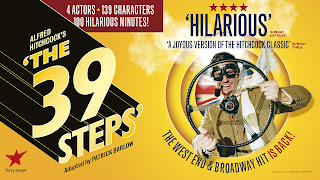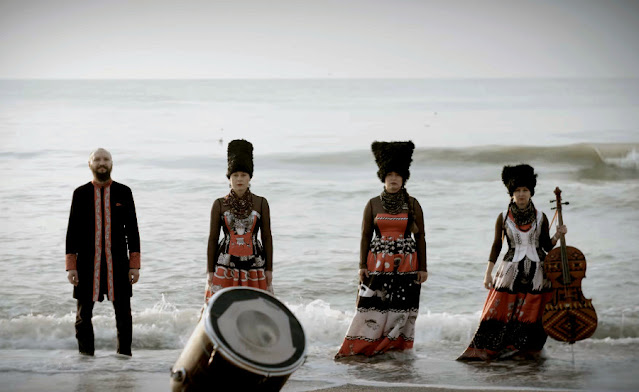Does Elf on the shelf prepare children for a surveillance state?
While the title to this blog may warrant reaction of confusion at the complete absurdity of the question, it is a question that has been asked by a number of journalists over the past few years. Elf on the shelf was never a prominent aspect of the western Christmas tradition, yet despite its initial appearance in the UK being around 2013 some children have never have had a Christmas without its presence. Elf on the shelf has garnered a lot of popularity in the past few years in particular, with fashion items being sold for the elf to wear and consistent articles appearing in newspapers about instances of elf on the shelf gone wrong. As such it seems that it may become a permanent part of the British Christmas tradition. But with the elf likely to stay we have to ask what effect does its constant presence place on our children?
I will preface this discussion by claiming that it is highly unlikely that the elf on the shelf company has any ulterior motives other than making a substantial holiday based profit and providing a fun character for parents and children to enjoy around Christmas. Yet there is an underlining quality inherent to the elf on the shelf as a product which can bring forward apprehension when determining that this new elf craze is not sinister.
Elf on the shelf as weird as it sounds does mirror a surveillance state. A surveillance state is one not too dissimilar from that of George Orwell's 1984 where one could not even mutter an opinion that may cause anger from those in charge due to one being constantly surrounded by recording devices. Whilst of course elf on the shelf does not match the dystopian society of Orwell, given that in reality the elf does not record anything, children would still act as if the elf was actually recording them as they would believe the stories they were told by their parents. That is the stories that the elf works for Father Christmas and has the ability to record anything you may do wrong and report it back to him. This, you can see, is not too dissimilar from a camera recording a person misbehaving and reporting it back to a leader of a totalitarian state. Further the recording of misbehaviour in both scenarios results in punishment one imprisonment or death and the other a loss of presents. Whilst of course the extremeness of the former scenario makes the loss of presents seem irrelevant to us, for children losing out on presents from Santa seems wildly extreme. Furthermore, the story that the elf can travel on its own accord and often appears in places where the child does not initially see it perpetuates the feeling for the child of constantly being watched and surveilled, a similar feeling to what we would have in a state with hidden cameras and recording devices. Indeed, I think it is abundantly clear that the story the child hears about how the elf on the shelf operates strongly mirrors of the reality of a surveillance state.
Of course the similarities between a surveillance state and the story told alongside the elf on the shelf doesn't necessitate that children have been prepared for a surveillance state. One could argue that as soon as one is old enough to know that its one's parents is moving the elf around the house then one is free of any of the fear of misbehaviour that comes with it. Therefore as one grows older and becomes more logical the initial impact that the elf on the shelf has on a child could disappear. Whilst this may truly be the case it still produces somewhat of a worry. Indeed, many of the things that are conditioned into us as children and many of the behaviours we develop often stay with use for life. For example, we are somewhat conditioned into politeness, in saying please and thank you by our parents, and as such we will continue to use such terms into adulthood without consciously thinking about it. We are also conditioned into accepting that others have authority over us, not necessarily just intellectual authority (in the case of the uninformed patient and the doctor) but we are conditioned to simply accept that some have authority for reasons which are highly illogical, such as those who are simply older than us who do not posses any greater intellectual knowledge or the monarchy who have authority despite their position only holding due to outdated rules. It is the conditioning of certain ideas as a child which then proceeds with us to our adult lives which we can draw the worry that the elf on the shelf could prepare children for a surveillance state. As indeed, if as a child you willingly accept your actions and behaviour is being recorded and that you could face punishment if you do not behaviour 'correctly', as an adult you may be more willing to accept a surveillance state as you have been conditioned from a young age to accept such a thing. Furthermore, your general behaviour may also reflect that of being surveyed by an elf, as a child behaving well in front of an elf may mean that they naturally behave well if they were to be brought into a surveillance sate where the rules are very similar to that of the elf. If they have been conditioned to behave that way as a child they would likely not question surveillance enough to feel the general unease and want to bring it down, rather they would see it as a normal part of existence . Of course we cannot really determine whether one has been conditioned by elf on the shelf and whether ones behaviour would reflect that conditioning if they were to fall into a surveillance state, yet it still seems like a legitimate worry to hold.
I am not stating that one should instantly throw their elf in the bin or that it is definitively the case that elf on the shelf will condition your child to accepting future surveillance. Yet, it is an interesting worry to discuss given the turbulent politics of the last decade and how through the internet we are being surveyed more than ever. Furthermore, it also shows how simply through making the line 'he sees you when your sleeping' (from Santa Clause is coming to town) manifest into a physical object through the elf on the shelf that it is ever more easier to make your child behave around Christmas, as through having a physical reminder that Santa knows exactly what you are doing a child is more predisposed to behaving than they would be by a line spoken by parents or a song that they can easily forget. And in turn how it can ready them for a surveillance state. Indeed, the invention of the elf on the shelf does ultimately get our children to believe they are being surveyed by a higher authority, whether or not this will condition them into accepting a surveillance state, only time can tell.





Comments
Post a Comment